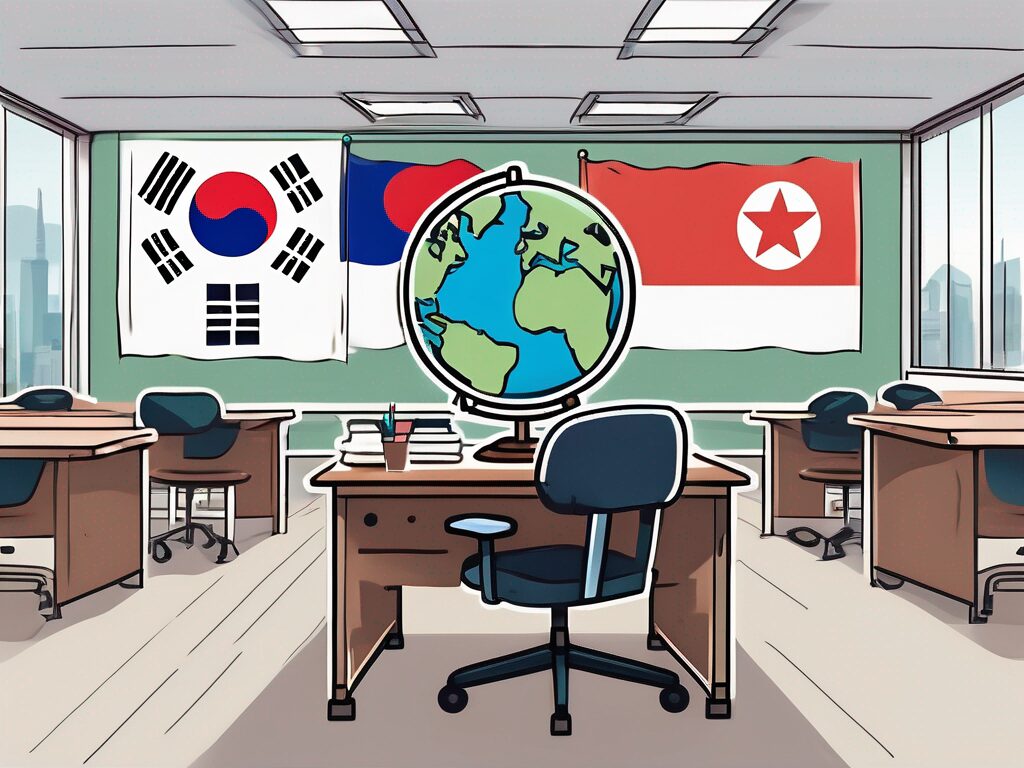Average Salary for International Teachers in South Korea 2025
South Korea, often referred to as the Land of the Morning Calm, has emerged as a prominent destination for international educators. The country’s cultural richness, technological advancements, and growing demand for English language instruction make it an attractive option for teaching professionals. A critical inquiry among prospective educators is, “What is the average salary for international teachers in South Korea?”
This guide aims to provide a comprehensive overview of the salary landscape for international teachers in South Korea. We will examine the various factors influencing compensation, compare salaries across different educational institutions, and discuss the cost of living in South Korea. This information is essential for educators considering a teaching career in this dynamic country.
Factors Influencing Salary
Type of Educational Institution
The type of educational institution significantly impacts salary levels. Public schools typically adhere to a standardized pay scale, while private institutions and language institutes (hagwons) may offer more competitive salaries based on individual qualifications and experience.
- Entry-level positions in public schools generally start at approximately 1.5 million KRW per month.
- Experienced public school teachers can earn up to 3 million KRW monthly.
- Hagwons typically offer salaries ranging from 2 million to 2.5 million KRW for novice teachers, with potential earnings reaching 3.5 million KRW for those with substantial experience.
Qualifications and Experience
In the field of education, qualifications and experience are pivotal in determining salary levels. Educators possessing a bachelor’s degree in education or a related discipline, along with TEFL/TESOL certification, are likely to command higher salaries.
- Teachers with several years of experience can expect salaries that are up to 30% higher than those of their less experienced peers.
Salary Comparisons Across Educational Institutions
Public Schools
Public schools in South Korea typically follow a structured pay scale. The starting salary for first-year teachers is around 1.5 million KRW per month, with incremental increases based on years of service.
Additionally, public schools often provide supplementary benefits, including housing allowances, paid holidays, and severance pay, which enhance the overall compensation package.
Private Schools (Hagwons)
Private language institutes, or hagwons, are recognized for their competitive salary offerings. A novice teacher can anticipate a monthly salary between 2 million and 2.5 million KRW, while seasoned educators may earn up to 3.5 million KRW.
It is important to note that, despite higher salaries, hagwons may require longer working hours compared to public schools, and the benefits package may be less comprehensive.
University Positions
University teaching roles are highly coveted in South Korea, often necessitating a master’s degree or higher, along with several years of teaching experience. Salaries for these positions typically range from 2.5 million to 5 million KRW per month.
University positions frequently offer generous benefits, including housing allowances, paid holidays, and research funding, making them an appealing choice for many international educators.
Cost of Living in South Korea
While the salaries for international teachers in South Korea are generally competitive, it is crucial to consider the cost of living. South Korea is characterized by high living standards, with some expenses being relatively affordable while others can be quite costly.
- Housing in major urban centers, such as Seoul, can be expensive, whereas smaller towns and rural areas offer more affordable options.
- Dining out can be costly, but local markets provide access to reasonably priced fresh produce.
On average, a single individual’s monthly expenses, excluding rent, are approximately 1.1 million KRW, although this figure can vary significantly based on personal lifestyle choices and spending habits.
Conclusion
In summary, the average salary for international teachers in South Korea varies considerably based on the type of educational institution, individual qualifications, experience, and geographical location. With competitive salaries and a high standard of living, South Korea remains an appealing destination for educators worldwide.
Whether you are an experienced educator seeking a new challenge or a recent graduate eager for an enriching teaching opportunity, South Korea offers a rewarding professional experience. Consider embarking on your teaching journey in South Korea today.
Advance Your Teaching Career in South Korea with IPGCE
Are you prepared to enhance your teaching qualifications and secure your ideal position in South Korea? The International Postgraduate Certificate in Education (IPGCE) serves as your pathway to overcoming qualification barriers, advancing your career, and integrating into a vibrant professional community. Our program is specifically designed for educators aiming to elevate their expertise and adaptability within global education systems. With a proven history of increasing interview callbacks, promotion rates, and salary potential, the IPGCE is an excellent choice for ambitious teachers. Seize the opportunity for professional development through our flexible online study options. Join the UK’s leading Teacher Training Course and commence your journey toward teaching excellence in South Korea today.

